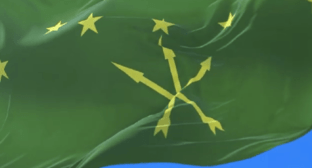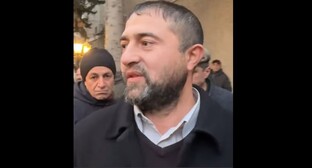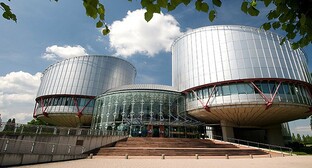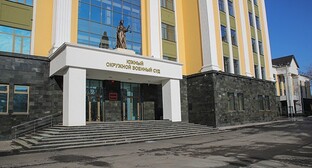14 November 2020, 17:45
Baku analysts explain peacemakers' role in Lachin Corridor
The motor traffic between Armenia and Nagorno-Karabakh will remain by the existing road via Lachin and Shusha, but cars there will be accompanied by Russian peacemakers there, analysts from Baku believe.
The "Caucasian Knot" has reported that Russian peacemakers, following the concluded tripartite agreement on ceasefire in the conflict zone, have taken control over the Lachin corridor connecting Karabakh with Armenia, by setting up temporary posts there. On November 12, the peacemaking battalion of the Russian Ministry of Defence (MoD) took control of Stepanakert; 10 observation posts were set up along the contact line.
On November 10, an agreement between Russia, Azerbaijan, and Armenia on the cessation of the hostilities in Nagorno-Karabakh came into force. According to the agreement, Azerbaijan takes over the territories of Nagorno-Karabakh captured during the hostilities and gets the so-called "Security Belt", that is, returns the territories of five districts adjacent to Karabakh.
The "Caucasian Knot" has drafted a map to show the territories that will pass over to Azerbaijan after the autumn war. Also, the "Caucasian Knot" has published a deployment map of the Russian peacekeepers in Nagorno-Karabakh.
Transport communication between Armenia and Nagorno-Karabakh will be carried out along the existing road Goris-Lachin-Shusha-Khankendi (hereinafter: the latter's Armenian name of the capital of Nagorno-Karabakh is Stepanakert, – note of the "Caucasian Knot"), Avaz Gasanov, the head of the Society for Humanitarian Studies, told the "Caucasian Knot".
According to his story, the five-kilometre width of the Lachin Corridor, indicated in the text of the Aliev-Pashinyan-Putin statement, is provided in order to exclude possible shelling from automatic weapons.
The traffic along the Lachin Corridor between Armenia and Nagorno-Karabakh will be accompanied by Russian peacemakers, said Zardusht Alizade, an Azerbaijani political analyst, Director of the NGO "School of Democratic Journalism".
"In all likelihood, convoys of vehicles – personal cars, trucks and other vehicles – will be formed 2-3 times during a day; and they will be accompanied by peacemakers' convoys," Mr Alizade told the "Caucasian Knot".
This article was originally published on the Russian page of 24/7 Internet agency ‘Caucasian Knot’ on November 14, 2020 at 05:53 am MSK. To access the full text of the article, click here.
Author: Faik Medzhid Source: CK correspondent




